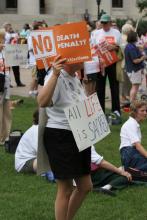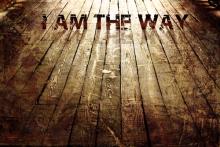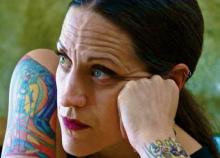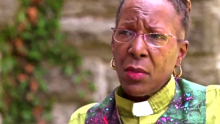Grace
DANIEL BELL'SThe Economy of Desire juxtaposes Christianity and capitalism, situating both in the context of postmodernity. The main argument of the book is that performing works of mercy—both corporal and spiritual—constitutes an alternative economy that can resist capitalism. Capitalism, in Bell's construal, is an economic system founded on voluntary contracts, private property, and an ideological regime where the rule of the market transcends the rule of law and disregards the reign of God in Christ.
The author draws on the work of philosophers Michel Foucault and Gilles Deleuze to set up a philosophical framework for talking about power and desire. His treatment of Foucaultian insights on the ubiquity of power is meant to decenter the state as the primary engine of social change. Deleuze's work builds on Foucault's argument by conceptualizing people—and society at large—as flows of desire. Taken together, the claim is potentially but not necessarily democratic: Social structures organize desire in particular ways and are malleable due to the fact that power resides not only in the state or market but in the relational networks of everyday people. Under this account, for instance, the typical presidential election is not simply about securing votes, but about directing the aspirations and actions of the electorate toward a collective passion for growing the economy, expanding the middle class, and so on. Capitalism, for Bell, secures our loyalty because it shapes what we do as well as what we desire.
A few strengths of the book stand out. It contains a lucid discussion of the difference between commutative (fair contracts) and distributive (fair proportion of wealth, power, and other goods) justice within society. The scope of the author's analysis is also impressive. Bell substantively engages the arguments of diverse figures from Adam Smith, Milton Friedman, and Friedrich von Hayek to Augustine, Thomas Aquinas, and Martin Luther. Moreover, Bell's contention that proponents of capitalism effectively deny the possibility of social holiness is worth the price of the book.

Sharletta Evans of Denver says it was her faith that motivated her to forgive the teens who killed her 3-year-old son, Casson, during a drive-by shooting. When she did, Evans says, she could feel the hate evaporate from her body. She has since developed a relationship with one of the young men, whom she hopes to see released from prison.
Minnesota’s Mary Johnson drew on her faith for the strength to meet with and forgive Oshea Israel, who was 16 when he killed Johnson’s 20-year-old son, Laramiun Byrd. Mary now considers Oshea, who lives next door to her, her spiritual son. The two now frequently speak together about anti-violence and the power of forgiveness.
And Mona Schlautman, whose 15-year-old son, Jeremy Drake, was kidnapped and killed in a park in Omaha, Neb., says her faith — plus her belief that it is good public policy — have led her to support changes in that state’s laws that would ensure young people who go to prison for serious crimes have meaningful opportunities to be considered for release after they have acknowledged what they did, asked for forgiveness and sought to make amends. She testified before the Pardons Board several times on behalf of Jeremy Herman, who at 17 was convicted of kidnapping her son. He was released from prison after 19 years.
Throughout the United States, people of faith are on the front lines of the effort to replace life-without-parole sentences for children with age-appropriate accountability measures that focus on rehabilitation and reintegration into society. The Juvenile Justice Week of Faith and Healing is an annual event intended to engage faith leaders and further increase awareness of individual, community and social needs arising from the current juvenile justice system.

As I stood in line at Orlando International Airport, a little girl did not want to go through airport security. She was desperately clinging to her grandmother.
I had already been pondering, as I *always* do, the enormous investment the nation has made in these checkpoints, going on 12 years now, in response to the actions of 19 men. 19 persons. These lines are here forever now, just one more cost of the fall, one more insult to our usual illusion of normalcy.
I'm not inconvenienced by the searches or the scanners, or worried about my personal liberties, though half stripping in public is embarrassing (we men have to take our belts off). At least the posture in those full-body cylinders reminds me that, at a very real level, this ought to be my more constant pose: found wanting, presumed guilty, and in need of throwing up my hands in surrender.
Still, I marvel at the sheer amount of money we must spend for all of this equipment and personnel, hoping this all somehow makes us safe. I'm skeptical.
JUST A FEW dozen pages into Faith, Doubt, and Other Lines I've Crossed, evangelical pastor Jay Bakker pens what may be the best explanation for the Christian emphasis on church community that I've ever encountered. Noting that doubt can be "hard and scary," Bakker writes: "That's why we have one another, why we have community. We can go through those days of doubt together. I wouldn't be who I am today if it weren't for the people who have been there with me as I question everything."
Many writers have grappled with the challenge that doubt poses for religious believers. But in this honest, searching, and ultimately uplifting book, Bakker pulls doubt out of the shadows where many believers wrestle with it on their own and instead presents it as a reality that Christian communities can and should address together.
Bakker's approach to the often-taboo topic of questioning—or, as he puts it, "the sense that faith is crap, life is meaningless, there is no God, the Bible is a fraud, Jesus was just a charismatic man turned mythological figure if he existed at all"—is shaped by his childhood in a Pentecostal environment that left no room for doubt. As Bakker ruefully notes in the book's introduction, "I will probably be 80 years old and still introduced as Jay Bakker, son of Jim and Tammy Faye." That unusual background only provides the impetus, however, and not the substance for this book, which reads mostly as the stream-of-consciousness meditation of a man pushing and pulling at his faith to see if it holds up.
WE SHOULDN'T really expect the Oscars to grasp the point of history, though this year the films nominated for Best Picture are a fascinating snapshot of what ails—and could heal—us.
Zero Dark Thirty takes a clinical view of the search for Bin Laden and has been criticized for its portrayal of torture as effective. To my mind this debate may miss the wider question: Torture is bad enough, but a central assumption about the efficacy and validity of killing for peace—that shooting an old man in his bedroom would solve anything—is worthy of enhanced interrogation.
The point is missed also in the brouhaha about Django Unchained, Quentin Tarantino's thrilling satirical Western. People are up in arms about the comic book violence and use of the N-word—but this is perhaps the most powerful, even indelible, portrayal of the violence of slavery ever made for a mainstream audience. Two wrongs don't make a right, and the revenge arc in this film should be questioned, but Tarantino has done a moral service in not sanitizing his fictionalization of historical memory. Lincoln is the perfect companion piece—I highly recommend you see both. Django Unchained uses B-movie tropes to vastly entertain while confronting the real horrors Abraham Lincoln was fighting to end. Lincoln is a theatrical history lesson that delicately handles the moral authority competitions, language games, and political complexity behind the 13th Amendment.

In the church of my childhood it was taught that the “age of accountability” was somewhere around 12. To hit the age of accountability was to, like, spiritually go off of your parents’ insurance. At age 12 the clock starts ticking, spiritually speaking; you know right from wrong now and because of this you are accountable for every time you screw up. And if you sin knowing right from wrong and then die before you chose to be baptized, you might burn in Hell for eternity. So age 12, as you can imagine, is when kids start choosing to get baptized. The lag time between entering the age of accountability and having your slate wiped clean through baptism can be terrifying. Many of us kids would pray not to die in a car crash before we were baptized, like other people pray to not get sick before their employee benefits kick in. So basically, 12-year-old Church of Christ kids experience a wave of devotion like a Great Awakening comprised only of sixth graders. And this is partly because we were all terrified of the devil and temptation and sin. Since, as we were told, all the bad things we’d done may have been washed clean in baptism, but the devil was waiting right outside the baptistery to try and get us to be bad again.

For many centuries Christmas Day worshippers have been hearing these words as their New Testament reading: “For the grace of God has appeared, bringing salvation to all” (Titus 2:11). Grace, everyone used to know, is foundational to the Christian Gospel.
But this Christmas I’m noticing the surprising version of grace in Les Miserables, already seen by 60 million people as a musical and now as a film. Victor Hugo’s novel may be seen as a story of grace transforming in the life of the common man Jean Valjean and grace rejected in the life of the rigid functionary Javert.
As the story begins, Jean Valjean is being released from 19 winters of imprisonment for having stolen some bread to save his sister’s son from starving. But in the eyes of Javert, Valjean will always be a thief, which is his nature, because he has not learned the meaning of the law. Crushed under this ideological overlay, Valjean sees himself as a slave of the law — in a way remarkably similar to that of St. Paul, who makes grace and law antithetical. The chorus confirms it: “Look down, you will always be a slave.”
In his first job after prison, Valjean is deliberately underpaid. When he objects, the boss says: “Why should you get the same as honest men like me?” (Jesus once told a parable about laborers in a vineyard to open people’s eyes to grace.) Valjean concludes that society has closed every door to him. When he is refused lodging, the innkeeper says: “We’re law-abiding people here. Thanks be to God.” The conservative identification with the law is commonly made in alliance with God, while Victor Hugo seems to understand that the Christian vision identifies grace, not law, with God.
A Vital Word
In I Told My Soul to Sing: Finding God with Emily Dickinson, Kristin LeMay explores in detail 25 poems as "witnesses" to Dickinson's wrestling with God. LeMay elegantly combines accessible literary analysis with her own spiritual memoir of search, doubt, and faith. Paraclete Press
Blessed Assurance
South African native Jonathan Butler has earned praise in the R&B, contemporary jazz, and gospel music fields. His latest album, Grace and Mercy, offers gentle songs that proclaim faith and hope in the midst of troubled times. Rendezvous Music

I AM AGAINST the death penalty in principle. The deliberate killing of prisoners does not demonstrate our society's respect for life, which we are trying to teach—especially to those who violate it. We simply should not kill to show we are against killing. It's also easy to make a, yes, fatal mistake, as alarming DNA testing has demonstrated, revealing some death row inmates to be innocent. In addition, the death penalty is clearly biased against poorer people, who cannot afford adequate legal representation, and is outrageously disproportionate along racial lines. The facts are that few white-collar killers sit on death row, and fewer are ever executed. And there is no evidence that capital punishment deters murder; the data just doesn't show that.
At a retreat I attended a couple of years ago, conservative activist Richard Viguerie approached me and said, "Jim, let's do something together to really shake up politics." Viguerie had become a friend, so I asked him what that might be. "I am a Catholic," Viguerie said. "I am against the death penalty, and I think it's time for conservatives and liberals who agree on that to begin to work together." I was fascinated at the thought of unlikely partners helping to accomplish that together. So we have had several dinner meetings over the last two years with both conservative and liberal leaders—mostly people of faith—to discuss the issue.
Here are some basic facts. There have been 1,312 executions since 1976, when the death penalty was reinstated following a 10-year moratorium. There were 43 prisoners killed in 2011, and 35 so far in 2012. As of April 2012, there were 3,170 people on death row. Forty-two percent are black, 43 percent are white, and 12 percent are Latino. Thirty-three states have the death penalty; 17 have abolished it and several have abolition legislation pending. Since 1973, 141 people have been exonerated and set free from death sentences because of new evidence—people who shouldn't have even been prisoners and were almost killed by the state due to false or faulty evidence. Eighteen of them were released because of DNA evidence. Who knows how many people have been executed unjustly?

I cannot
think that you don't
sound
or breathe
weep
or grieve
I will not
think that you don't
want
or ply
the cosmos
with love
or grace
seeking
us
lost again
I can believe
I can lose you
I can thwart you
I can set you up
I can watch you fall
to die
again
you breathe
weep
cry
sing
and I
am here seeking
better signs

“The prevailing view in much of contemporary Christianity is more subjective. It tends to be far more focused on the happiness and moral performance of the Christian than the object of faith, Christ Himself.” –Tullian Tchvidjian
Personally I tend to always focus more on my problems when I am going through trials. I am sure that some of you reading can relate to this. It seems normal to focus on ourselves during seasons of suffering. When I look back at the most difficult time of my life, I realize how self-absorbed I was with everything that I was going through. I felt that no one could understand or relate. I felt alone and isolated. My focus was on trying to figure out a way that I could fix myself.
The days and weeks passed by and eventually my suffering faded away with time. But when I look back and remember those days it amazes me how internally focused I was! The reality that strikes me still today is the fact that there was nothing within myself that could make my suffering go away. I read my Bible and read some self-help books, but nothing could alleviate my pain. Was I doing something wrong? Did I not have enough faith? Was God punishing me for my sins? It angered me that I did not have the power within myself to just “make life all better”. I was helpless and hopeless during that season of life. There was nothing that I could do. I was a sinner in need of a Savior (1 Timothy 1:15).
Reentry is often a pain in my ass.
It's true. I get a chance to get away from it all, to spend some time with friends and begin to unwind and it's glorious. But then there's the return trip home. It always takes longer. It's like slogging through Chicago slush. Painful. Unpleasant. So, after years of dealing with this side of my personality, I've tried to develop a habit of articulating the positives of leaving.
I rise on the wrong side of the bed the day after spending time in contemplation and wonderment. It happens. I apologize to Spouse and try not to step on any toes. Rev. Crankypants is in the house.
So, to undo the crankyness, I want to thank Brother Rob for his kind attentions over the last few days. I want to thank him for letting me use his name in such a scandalous way as I have. His coattails are long. It's astonishing how using his name in such a title can bring traffic to one's blog. It's a little embarrassing, really.
Rob is a good man trying to do some radical stuff. He has a ministry to those who understand the call to be fully awake and alive in this world as a radical posture.

BAHIR DAR, Ethiopia — When I posted this photograph of a beautiful little Ethiopian girl holding a daisy a few days ago, my friend and fellow God's Politics blogger Christian Piatt responded on Twitter with a four-word comment:
"The Face of God."
Christian's remark stopped me in my tracks ... because it's absolutely true.

Prolific author Max Lucado talked to Religion News Service about grace, the topic of his 29th book, and answered a range of questions from people who follow RNS on Twitter. Lucado, 57, is the minister of preaching at Oak Hills Church, a nondenominational congregation in San Antonio.
The interview has been edited for length and clarity.
Q: You write that people don’t have a deep understanding of grace. What’s the difference between grace and mercy?
A: My hunch is that most people have settled for a wimpy grace. It’s something that doesn’t change their lives. There is a difference between grace and mercy. Mercy is the decision of God not to punish us. But grace is the decision of God to save and bless us.
Q: @tunde_ogunyinka wants to know: What is the one thing you can’t do without each day?
A. I think the one thing that I cannot do without each day is hope. If you put me in a position where you took all my hope away, I’m not sure I could make it through the day.
Q: @kaykay_ayodeji asked: Which book or writer has inspired your style of writing?
A: Early in my writing I was influenced by a man named Frederick Buechner. Back in the ‘90s I read many of his books and it really influenced my thinking and my writing. He has a slight irreverence that I thought was refreshing but it’s not an irreverence that’s unbiblical. It’s just real appreciation for God’s greatness. It’s like it released him to be a happy writer.

Years ago on a bright Tuesday in March, I was driving to seminary and I found myself stuck in traffic on I-25. Sitting in a dead stop on the interstate I stared up into the clear blue Colorado sky and thought, “What in the world am I doing? I don’t believe a word of this Jesus stuff. I mean, It’s a fairy tale.”
But then in the very next moment I thought, “Except…throughout my life…I have experienced it to be true.”
I experience the gospel to be true even when I can’t believe it. And honestly sometimes I believe the gospel even when I don’t experience it. And I suggest to you today that this is why we have and even why we need Word and Sacrament. Because see, we are a forgetful people.
And it is to this office of Word and Sacrament that you have been called Matthew and I feel like in an ordination sermon, the preacher should in some way address the level of preparedness of the ordinand in question, and I am in a position to do just that.
PASTOR T.C. RYAN spent 40 years haunted by the shadow life of compulsive sexual behavior. Despite the challenges, Ryan never gave up hope of trying to reach the fullest recovery. He tells his story in Ashamed No More.
Compulsive sexual behavior put Tiger Woods into the headlines and made him an object of ridicule, as it has for so many others. In telling his own story, Ryan tears back the curtain to reveal the fuller story of painful realities, challenges, and hopes for those faced with the daunting task of recovery from similar compulsions.
“Those who are not addicted to sex understandably assume that the addict at least experiences enjoyment from the sexual activity, but this is not the case,” Ryan writes.
As Ryan describes it, he was living a divided life. In one arena he was a capable and gifted pastor. In the other he was plagued by shame, self-loathing, and an inability to stop destructive behavior. His extensive explanation of the cycle of addiction, the lies he had come to believe from childhood, the role that therapy and other supportive measures played in his recovery, and his hopes for how the church can become the ultimate 12-step program make every chapter of this book essential.

My sons, ages 13 and 10, spend two evenings each week on a golf course because I parent out of my own personal brokenness, which includes an acute awareness of life experiences and skills I was not exposed to growing up.
Tennis lessons. Skiing lessons. Swimming lessons. Golf lessons.
Check. Check. Check. Check.
(My daughter got the first three. She escaped golf because she has immersed herself into the world of dance for the past few years though it’s not completely out of the picture yet.)
One of my goals has been to expose my children to things I didn’t do and at one point or another felt like I had missed out on. This all despite the fact that I also wrestle with my own personal prejudices against sports like tennis and golf because they have in one way or another represented privilege and access to opportunities and networks my parents and I did not have.
So it did not surprise me to see a very diverse group of participants on our first day at the course – diverse meaning White or Caucasian children were in the minority. Golf, whether you are in business or in medicine, more if you are male but increasingly so if you are female, is one of those “life skills” that also translates into opportunities and networks that non-White communities continue to learn about and enter into.

In the recent past there was a small group of children gathered in the village of Tucville, located near Georgetown, Guyana. After a few hours of games on the street, the curious crew wandered away from adult supervision and explored a nearby abandoned sewage facility. The children enjoyed their playful investigation, but as they walked a narrow path near the edge of a raw sewage container, a 5-year old girl named Briana Dover accidentally slipped, fell, and quickly sank to the bottom.
As to be expected, Briana’s friends immediately screamed and ran for help, but as neighbors and witnesses rushed to the site, they all stood in shock. Although some considered diving into the tank, no one stepped forward. The container was too large, the smell of rotten feces too disgusting, and the actions required far too dangerous. With each passing moment Briana held to the brink of life at the bottom of the sewage reservoir, moving closer to death with each tick of the clock.
In the meantime, a middle-aged Rastafarian named Ordock Reid heard the commotion. After initially thinking it was a worker dispute, he eventually examined the situation, and as he approached the tank, he was greeted with loud screams and anguished faces. When he was told about Briana’s predicament, he acted immediately. Ordock Reid – a total stranger – took off his clothes, tied-up his dreadlocks, fastened a rope to his waist (handed the other end to an onlooker), and submerged himself through the muck and filth in an attempt to rescue Briana Dover.

Editor's Note: God's Politics contributor, Nadia Bolz-Weber, recently delivered an address to the Evangelical Lutheran Church in America's (ELCA) Youth Gathering in New Orleans, where she told the story of her spiritual journey from tattooed, alcoholic ne'erdowell to tattooed, 20-years-sober, Lutheran minister. Nadia's is a powerful tale of redemption, God's unconditional love, and staggeringly real grace.
Nadia told the thousands of Lutheran youth gathered in the Big Easy earlier this month:
Some of your parents and some of your pastors were really upset that I was your speaker tonite. They felt like I was someone who should not be allowed to talk to tens of thousands of teenagers. And you know what I have to say to that? They are absolutely right.
Somebody with my past of alcoholism and drug abuse and promiscuity and lying and stealing should not be allowed to talk to you. You know what? Somebody with my present — who I am now — shouldn't be allowed to talk to you because I am sarcastic, heavily tattooed, I swear like a truck driver — they're having a heart attack back there, going, "Please help her not swear."
I am a flawed person. I should not be allowed to be here talking to you. But you know what? That's the God we're dealing with, people.

The Rev. Andrena Ingram is currently the only known Lutheran ordained pastor living openly with HIV. Her husband's death from an AIDS-related illness, and the shame that he felt, inspired the pastor to be open about her own diagnosis with HIV. She is known as "The HIV Minister" – a title that has helped others with HIV reach out to her for help.
Listen to Ingram tell her story inside the blog...